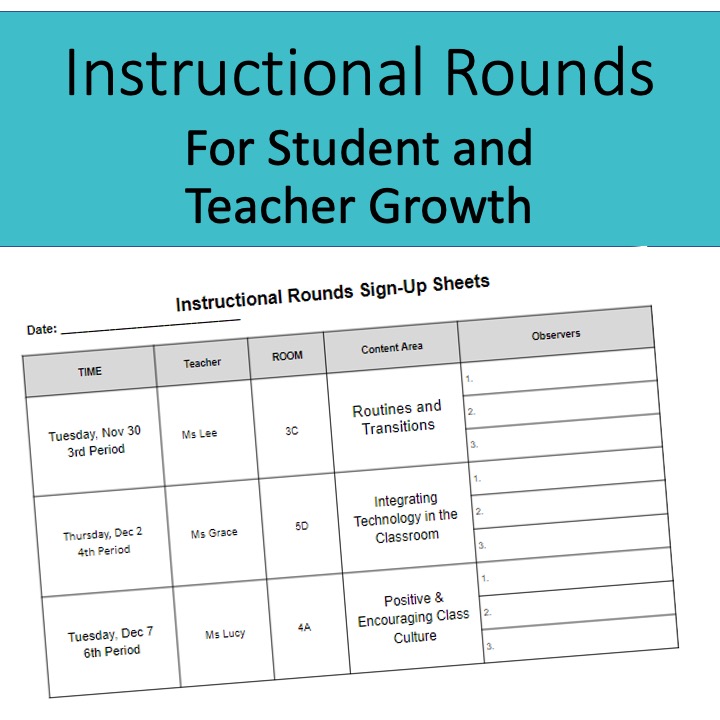I’ve spent almost two decades working in education and various types of schools. I was a teacher and now I train teachers. I’ve seen schools where teachers are growing rapidly, transforming their teaching methods and student learning. I’ve also seen schools where teachers are stagnant and complacent. What makes the difference? Why do teachers grow in some environments and not others? Here are four keys I’ve discovered to promote positive growth in teachers.
1. Give teachers choice
Adults don’t want to be told what they have to learn. They need to believe that whatever they are learning is relevant to them personally and will help them solve a challenge they have. But not every teacher has the exact same challenges. Some teachers are first year teachers possibly struggling with classroom management. Others are veteran teachers who might be struggling with implementing new technology in their classroom. Therefore, it’s vital to allow teachers to choose what it is they want to learn and grow in. Allow them to set goals for themselves or sign up for the professional development opportunities they think will help them the most.
2. Provide different levels or options for receiving support
Along with giving teacher’s choice, you must provide them a variety of options and methods to receive support. A professional development workshop isn’t the only way teachers in your school can learn and grow. Throughout the year there should be options to learn in a group, learn on your own, learn from a mentor etc. A school that sets the right environment for professional growth provides opportunities that require a lot of time and commitment, and other growth opportunities that require very little time from the teacher. Adults are individuals and they learn in different ways. They have different amounts of time they can dedicate to learning professionally. If you only provide learning opportunities in one way, you won’t be able to support ALL of your teachers. Read more in my post on alternatives to professional development workshops if you would like some creative suggestions to offer.
3. Develop a trusting relationship between teacher and coach
Thirdly, supporting teacher growth must start with creating a trusting relationship with them. Adults don’t automatically believe everything someone says. They also don’t accept help and support from people they don’t know and trust. If you want an adult to take what you say to heart and actually implement it, you have to work on building that relationship with them. I’ve worked in several countries and schools around the world, with teachers from a variety of backgrounds and cultures. Whenever I first join a school, I spend a significant amount of time listening and observing. Teachers respect this about me. They respect that I don’t come into a new place with “guns blazing”, wanting to change everything about the place. After all I’M the newcomer, the outsider! They eventually start asking me about my experience, asking for my thoughts and what I’ve observed.
4. Provide support throughout the implementation process
Finally, teacher growth takes time and requires follow up throughout the process. I can’t say how often I hear teacher friends of mine talk about a professional development workshops they attended for a new program, curriculum or teaching strategy the district wanted to implement but after the workshop there was no more support. Teachers had all kinds of questions and no way to get them answered. Those are the programs and curriculum that tend to get discarded the next year because no one used them.
No matter which type of professional development opportunities you provide, someone must follow up on how the new information is being used in the classroom and what the real effects are for students. Sometimes I follow up by telling teachers a month later that I’m going to come into their classroom and I want to observe them trying out whatever strategy I taught them previously. Other times I follow up just with a conversation between me and the teacher and asking them how they have been using what they learnt. Following up later gives the teacher an opportunity to ask more questions that they might not have thought of before. It also holds them accountable for doing something with the information they learned.
When given the right environment, I believe all teachers love learning and doing new things. Every time I interview a teacher they almost always says they are looking for a new job so that they can learn and grow more. Let’s help our teachers grow by implementing these four keys.
Other posts you might like:



